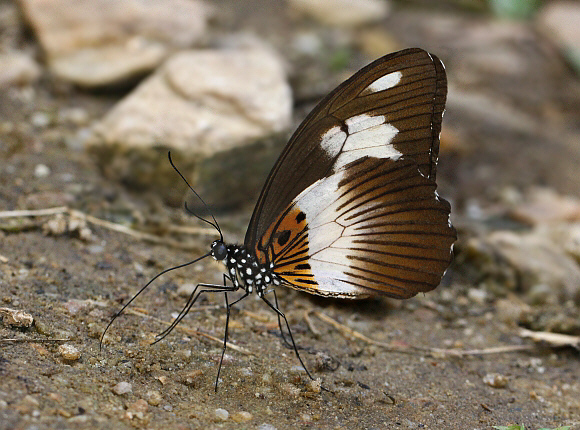
Introduction
There are about 90 recorded species of Papilionidae in Africa, of which 60 are placed in Papilio – a huge genus comprising of 210 species worldwide.
Among the African species there are several untailed, white-banded species that have underside patterns similar to nobicea, but the latter can be distinguished by virtue of the white patch at the end of the forewing cell, which is absent in the other species.
Papilio nobicea is endemic to the Volta region of Ghana, and the hills on the Ghana / Togo border.
Habitats
This is a hill-forest species. Although still relatively common, it is under increasing threat due to habitat destruction, particularly at Wli Falls where the forest is being cut down at a frightening rate.
Lifecycle
The larval foodplants of nobicea are not recorded but Piper (Piperaceae) is a likely candidate, as it is used in Ghana by the very similar and closely related species Papilio zenobia.
Adult behaviour
Males commonly settle at damp patches on forest trails to imbibe mineralised moisture.
